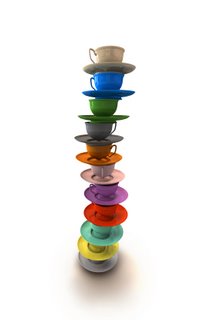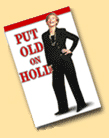Improve Memory with Phosphatidylserine (PS)
 Today we’re not only living longer, we’re also looking younger, as millions of Baby Boomers turn back the clock with a little hair coloring, teeth brightening and the services of a good dermatologist. As for failing memory, it may be less obvious than crow’s feet, but far more worrisome. When the first signs of forgetfulness appear, usually sometime in the middle years, many people fear the worst -- the dreaded Alzheimer’s disease. More than likely, the problem is a far more common condition known as age-related cognitive decline (ARCD) or age-associated memory impairment (AAMI).
Today we’re not only living longer, we’re also looking younger, as millions of Baby Boomers turn back the clock with a little hair coloring, teeth brightening and the services of a good dermatologist. As for failing memory, it may be less obvious than crow’s feet, but far more worrisome. When the first signs of forgetfulness appear, usually sometime in the middle years, many people fear the worst -- the dreaded Alzheimer’s disease. More than likely, the problem is a far more common condition known as age-related cognitive decline (ARCD) or age-associated memory impairment (AAMI).During the first three decades of life, a healthy brain is like a top-of-the-line computer, effortlessly processing vast amounts of information via a network of 100 billion neurons, some 200 billion brain cells and countless connecting points known as synapses. As we age, though, brain cells die and the number of synapses drops. The result is ARCD, characterized by forgetfulness and/or learning difficulties.
The important thing to remember (no pun intended) about ARCD is that it is not inevitable. One of the best ways to counteract it is with a naturally occurring substance known as phosphatidylserine (PS). Although PS is found in all our cells, the highest concentrations are in our brains. There, PS works as a sort of biochemical “traffic cop,” guiding information across the synapses from one brain cell to another. In fact, a recent review study from the Alzheimer’s Prevention Foundation in
As the experts at the foundation point out, aging is not the only factor that compromises mental functions. Heredity plays a role, too, along with a high-fat diet, heart disease and long-term stress. Obviously, cutting back on “bad” fats (saturated and trans fatty acids) is a smart move, since both the brain and heart benefit. Try adding a small amount of “good” fat, like the omega-3 polyunsaturated fats -- found in grapeseed, flaxseed, walnut and fish oils as well as fresh deepwater fish -- to your diet, too. An animal study conducted in
Dozens of clinical trials from all over the world have documented the benefits of PS when it comes to improving memory and mental functions. While many of them focused on Alzheimer’s patients, others have tested PS as a remedy for ARCD. Not surprisingly, PS has been shown to result in significant improvements in memory and learning ability for patients without Alzheimer’s, especially those with the most serious difficulties.
Extensive testing has shown that PS is safe as well as effective. So if you’re looking for a way to keep your memory as young as the rest of you, PS could very well be the key.
DOSAGE DETAILS
Labels: Alzheimer's, memory, phosphatidylserine









